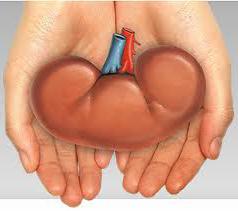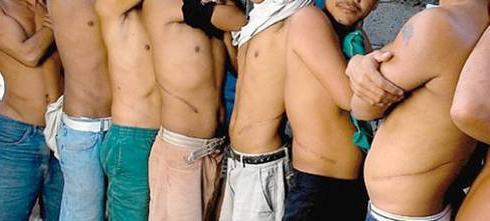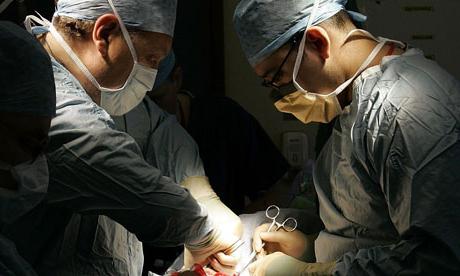We have a transfer. Where will the donor kidney come from? Is it worth changing the laws of the Russian Federation in the field of donation.
Often people have kidney failure. In order to fully recover and get the body working normally, a kidney transplant is often required.
- wrong way of life;
- disturbed metabolism;
- trauma;
- urological diseases;
- consequences of diabetes and other serious illnesses.
The decision to transplant a kidney is made in the event that a person has a condition that is not treated with medication, and dialysis is powerless.
Transfer line
When the question arises as to whether a kidney transplant is needed, the patient is transferred to dialysis - the temporary maintenance of the kidney in working condition, and is included in the list for organ transplantation. The list of people in need of a transplant is usually long, but this does not mean that a patient will be the last to receive their kidney if they are at the bottom of the list. There are a number of indicators according to which a donor kidney may be suitable for one patient and absolutely not recommended for another. Thus, the wait can take both a few days and several years. The best option for seriously ill people is a kidney transplant from a close relative, if he agrees to become a donor. The reason for this is the presence of some identical proteins in the blood, a similar Rh factor and the same antibodies. In relatives, they are the most suitable for each other. If the relative agrees to become a kidney donor for the patient, the operation is performed in urgently, and the patient leaves the list of organ donor candidates.
To get on the waiting list for a kidney transplant, you must undergo a typing procedure, in other words, take a blood test for the presence of antigens. They are compared with other antigens in the donor organs in the database and thus they find the donor organ that is as close as possible in terms of blood composition, which will definitely take root in the body and will not cause rejection. immune system. However, the body cannot fully accept a new internal organ, so those who have already had a kidney transplant take immunosuppressive drugs to avoid the process of organ rejection.
Both relatives and strangers can become donors, but most often the donors are recently deceased people who were brought to the hospital. Victims of accidents, traffic accidents, electric shocks often receive injuries incompatible with life, but nevertheless their organs remain intact. If these people during their lifetime ever signed a consent to use their organs after death, or if their relatives agree to transplant their organs to people in need, then the organs are carefully cut out, placed in a special solution and “pickled” until required, after checking the indicators. From the moment of death of a person from which an organ can be removed, no more than 1 hour should pass.
Preparing for a transplant
Human immunity is designed in such a way that when foreign substances are detected in the body, antibodies immediately begin to be produced in order to protect the system and prevent foreign cells from creating "chaos" in it.
Therefore, for those who are waiting for a kidney transplant, it is important to observe the following rules:
- do not do a blood transfusion;
- avoid contact with foreign proteins in your body;
- maintain good health;
- observe hygiene;
- prepare in advance for your stay at the transplant center;
- always stay in touch with your doctor.
A donor organ can be found at any moment, and by that time the patient should be healthy and feel good. Main enemy Kidney transplants are an infection that suddenly manifests itself in the body, so hygiene is important, especially the oral cavity - bacteria multiply there, which can subsequently adversely affect the survival of the kidney in the body.
Long-term departure and change of residence while waiting for a kidney is also not best options, but if nevertheless there was a need to leave the city, the doctor should be warned about this. Abrupt change climate has a bad effect on the well-being of a patient with kidney failure, and unfamiliar bacteria in environment pose a danger.
Operation
The found donor organ for the patient must meet certain parameters, namely:
- compatibility of blood cells with the patient;
- kidney size;
- kidney age (the difference between the donor and the patient should not exceed 15 years);
If the organ meets all requirements, the patient is informed about the operation. Certain documents should be prepared for it: take an extract from the hospital about the latest tests and injections, and sign the consent to the operation directly in the center itself.
A day or at least a few hours before the operation, the patient should not eat and drink in order for the transplant to be successful. Before the operation itself, there is one more control examination of the patient to identify possible problems with health. Everything is measured: height, weight, arterial pressure. The blood is checked for the presence of electrolyte disorders, the level of hemoglobin and hematocrit in the blood should be normal. Since the operation will primarily affect the blood, if abnormalities are found in it, hemodialysis will be performed, which will bring the indicators back to normal.

Another thing to consider before the operation is anesthesia. As a rule, clinics offer several types of anesthesia - gentle or deep. Anesthesiologists often advise a more gentle one, as it has less consequences, but if the patient high sensitivity to pain, the only option is deep anesthesia. After all necessary activities, including sanitary, kidney transplant operation begins.
Contraindications
For many patients, a kidney transplant would be a real salvation from pain, but alas, not everyone can be saved. Available multiple contraindications for this operation. Kidney transplant is only possible healthy body, without spreading diseases and infections on late stage: for example, tuberculosis or HIV infection and a kidney transplant are incompatible, because it makes no sense to introduce into an infected organism healthy organ, to do such a complex and expensive operation as a kidney transplant, if over time the disease hits her.
If the patient has not undergone immunosuppressive therapy incorrectly, in other words, the use of drugs to create favorable conditions for acceptance internal organ organism, kidney transplantation may not be performed, in which case all the blame falls on the patient.
Patients who have neoplasms in the body or who have recently had their malignant tumors, also cannot be applicants for a transplant. Observation of them takes from 2 to 5 years, during this time it is forbidden to do any operations, since the risk is high. residual effects in the body.
Patients with an open stomach ulcer or with heart failure may simply not undergo surgery.
Effects
Do not expect immediate improvement immediately after a kidney transplant. It takes several days for the new kidney to start functioning and the body to get used to it. Kidney failure completely disappears after a few weeks with correct reception recommended drugs. Life after a kidney transplant involves taking a lot of pills, but it's worth enduring it all for the sake of the result.
Immunosuppressive drugs are needed so that the body accepts the new organ as “its own”, and does not reject it. This happens because in the new organ there are other proteins that are dissimilar in DNA, which fall under the attack of lymphocytes - the "defenders" of the body.
Suppression of the body's defense system is fraught with instability to various kinds infections, so the operated patient is transferred to a sterile ward. It is better to visit the patient 1 or 2 weeks after the operation, since by this time the result of the operation will be visible and the patient will recover.
The worst fear for many is organ rejection, but this rarely happens if the course of steroids is taken correctly. Rejection occurs gradually, and therefore experienced doctors able to detect it even on the most early stages and start appropriate treatment.
When rejected, the transplanted kidney stops working properly, and if you do not react in time, it will die.
In general, a kidney transplant helps to extend the patient's life by an average of 5-10 years, during which he will be able to fully function. In case of a negative outcome of kidney transplantation, you can try again. If the patient meets all the criteria, he again stands in line. You can transplant kidneys to a person an unlimited number of times, but preferably at large intervals.
Twenty thousand Russians suffering from chronic renal failure are “chained” to the apparatus artificial kidney and several times a week are forced to undergo hemodialysis. Another five hundred of our fellow citizens are in line for a donor kidney. About who most often becomes a donor for a sick person, how much a kidney transplant operation costs and whether it is possible to sell your kidney to another person, told RIA Novosti correspondent Tatyana Vinogradova the day before world day kidneys March 11 Director of the Research Institute of Transplantology and artificial organs named after academician V.I. Shumakov Sergey Gauthier.
— Sergey Vladimirovich, how many kidney transplants are performed annually in Russia? How many such surgeries are performed by the Transplant Center?
— After some lull, when we had a failure in transplantation in connection with the case of the 20th hospital in 2002-2004, now the number of operations has increased. And in 2009, there were 820 kidney transplants in the country. The year before, 100 fewer transplants had been done. The year before, there were another 100 less transplants. That is, a certain growth, by a hundred a year, is a success for us.
Our Center performs more than a hundred kidney transplants annually. In 2009, we performed 106 kidney transplants.
How many people are in line for a kidney donation?
- It's not really a queue. This is the so-called waiting list - a list of patients who need transplantation, in this case, kidneys. The waiting list across the country can be counted by several hundred people - somewhere, probably, about five hundred people in total, maybe a little more.
But that doesn't mean it's a finite list. It's just that those patients who have been diagnosed are referred to a transplant center. There they were looked at and told that they really needed a kidney transplant, and in connection with this they were put on the waiting list. In this case, the person understands that he must comply certain rules. And if he got a phone call and was told that there is a donor organ, he should immediately come to the center, and not say that, they say, I changed my mind, sorry, I was joking. A person must make this serious decision for himself.
And then, when he has undergone surgery, he must follow the recommendations of the doctors and take the appropriate medications. Otherwise, the graft function will not be able to provide him normal life.
How long does a person have to wait in line?
“It’s not a line, it’s you today and me tomorrow.” It depends on the compatibility, on the blood type, on the coincidence of some indicators of tissue compatibility. A person is selected from the waiting list when it is the most good combination organ and person. Therefore, it is also a matter of chance.
A person can wait for his kidney from one day to several years. Sometimes people have certain immune characteristics that do not allow you to pick up the first organ that comes across. There are various laboratory tests that allow you to clarify right before the transplant itself whether this organ is suitable for this person or whether it is still better for him not to have surgery this time, because it will be difficult to avoid a rejection reaction, organ death and transplantation will be done in vain.
How does a person's life change after a kidney transplant?
- It usually changes better side. Very many people who now live and work have transplanted organs. Some employees of our center do the same.
Kidney transplant women can have children. If this childbearing age, then why not? Just do not lose touch with the observing doctors, you need to seek the advice of a doctor constantly. And we, together with obstetricians and gynecologists, bring these patients to childbearing. And normal children are born.
- Do all the kidneys take root and are there any statistics on the survival rate of the kidneys?
- On the this stage development of transplantology in the world and in Russia, cases of some kind of super-acute rejection - they just transplanted a kidney, liver or heart, and it immediately swelled up and stopped working - are extremely rare. In principle, at the current level of development of the pharmacy of immunosuppressants, that is, those drugs that we use to suppress rejection, this question is practically not worth it. There is no such thing that the kidney will not take root, that the organ will be rejected directly. In the future, chronic rejection syndrome may develop, when over many months, years of work, the function of the organ is gradually lost. This may be. And then the question of retransplantation arises.
How many times can a kidney be transplanted to one person?
- Infinitely, but it is desirable to do it less often. There are, for example, cases when a transplanted kidney functions for 30, 20, 15 years. And this is good. Five to ten years is average term for transplanted kidney function at correct selection immunosuppressants, with the right way life. When we talk about kidney transplantation, this is not so relevant - the kidney just stopped working. After all, you can go on dialysis, then prepare for new transplant. Of course, this is undesirable, but, nevertheless, such cases do happen. There are quite successful repeated and even third transplants.
The human body, in connection with the interaction with the organ that was transplanted for the first time, develops a certain immunity. And it is already quite difficult to re-select the corresponding organ that would not be subject to a rejection reaction immediately after transplantation. Therefore, the waiting time for re-transplantation is often long. One kidney does not fit, the other - and then they are waiting for a new one.
- All this time a person lives on dialysis. What is the availability of dialysis centers in Russia? Are they enough?
- If you immediately say so in the forehead, then, of course, it is not enough. But now this problem is solved. We now have about 20,000 people on dialysis. Every year, the need for dialysis increases by about six thousand people. A year ago, there were about 17,000 people on dialysis. That is, the progress in providing dialysis places is on the face.
Of course, much depends on how local doctors identify those people who are indicated for dialysis. You need to come to the doctor, the doctor must look and say that a person has kidney failure, take tests, see to what extent this kidney failure is pronounced, and say that you, my friend, need to do dialysis and send him to a dialysis center. But many people do not reach the doctor: medical education not enough, or maybe the doctor will point you in the wrong direction. It happens.
— Who is the most common donor for a person with chronic renal failure today?
Most of the dead are not relatives. There is no sale and purchase of organs in Russia. The donor will not receive any compensation. If a person dies, he donates his organs for nothing. You don't even need parental permission. And it is right.
There are two positions in world law on this matter. There is a presumption of consent, when if there is no refusal, then it is possible. And the presumption of awareness when you need to ask permission from relatives or the patient himself. Or, let's say, a person died, they found him, and he has a letter in his pocket stating that he is ready to become a donor. It's taken abroad and on enough good level supported. In Russia, as well as in Spain and France and in many other European countries, there is a presumption of consent, when it is not necessary to specifically ask for permission. If relatives are against it, then it's another matter, no one will take anything from anyone. But if there is no refusal, then it is generally accepted that this deceased person is a donor.
A living person can also become a donor, but he also cannot make money on a kidney or other organ. It's against the law.
- How much does a kidney transplant cost? Who pays for post-op drug treatment?
- The amount that the state provides is 808 thousand rubles for any type of transplantation. Now the standards are being revised and, apparently, there will be some increase in the cost, because everything is becoming more expensive: both consumables and medicines. Then a person receives immunosuppressants for life and free of charge.
- If we talk about what a person should do to keep his heart healthy, everything is simple. Do not smoke, do not eat fatty, do not drink, do not be nervous. From the point of view of preserving the health of the kidney, it is more difficult here, because the kidney is an organ that suffers from various other diseases of the body, in particular infectious ones. For example, you can have an unhealed tooth and get nephritis with kidney damage with a further transition to chronic kidney failure. Therefore, there should be a common culture here, and overall health should be monitored.
— Is it necessary to somehow change the "donor" legislation?
— The law is sufficiently civilized and based on foreign analogues and doesn't contradict anything. There is no need to change the legislation, it is necessary to change the attitude of the population and the medical community to the need for development posthumous donation organs. To do this, a person during his lifetime must know and understand that in the event of death he can bring some relief or recovery to at least five people, prolong their life, prolong the normal life of their families. But you need to carry this in your subconscious, not be tuned in such a way that “I died - and burn everything with fire!”. This should not be.
Abroad, there is a tradition: if someone close died, then this person after death became a donor for someone. People know that his heart was transplanted to another person, a neighbor or a nonresident. And between these families friendly relations are fastened. Because the heart of a loved one continues to live in this person. This is a very subtle understanding, but it should be. We need to come to this, it must be at the level of national self-consciousness.
- Can a foreigner in Russia sign up for a "waiting list" and transplant an organ?
- A conference will soon be held in Madrid, at which the issue of donation will be discussed in terms of self-sufficiency of the country's population to provide itself with donor organs.
After all, you can go to the USA, pay a lot of money, and they will transplant an organ to you, which means that this organ will not go to someone in the USA. Question: what is the point of the United States to transplant organs to people from other countries? Purely commercial. In our country, this is impossible, because there is a shortage of organs in Russia, and the arrival of a foreigner to us to have an organ transplanted is logically impossible. Because we have huge transplant waiting lists that need to be filled. And, accordingly, we have no right to make such operations to foreigners, even if they pay a lot of money. Because we are depriving our own member of society of the opportunity to receive this organ. This is called transplant tourism, against which all normal civilized transplant societies are fighting in the world.
And Russia signed the Istanbul Declaration, which says that this kind of tourism is a harmful phenomenon and unacceptable for civilized countries.
- Can any organ be transplanted to a person or are there any restrictions?
- No, not any, because you need to know why to transplant and what will happen next. Transplantation is an event that is associated with subsequent artificial suppression of immunity. That is, to some extent, we create an immunodeficiency in order for the organ in the body to hold on, take root, and function. Creating an immunodeficiency is a certain risk for a person, therefore, in order to give an indication for transplantation, you need to understand that without transplantation, a person will definitely die or he will develop such complications from which he will die a little later. We take risks precisely for the sake of saving lives through transplantation. To do this, there are commissions for the selection for transplantation. It's not just like that: a person came and wants a kidney transplant. It is transplanted not because a person will die tomorrow if a kidney is not transplanted to him, but because he becomes very dependent on circumstances. He is on dialysis. Whether he will receive dialysis or not also depends on the circumstances: how he will tolerate this dialysis, how socially limited he will be in this regard. After receiving a donor kidney, a person becomes normal member society.
Dear Andrey.
My name is Natalya Mazulkova, I am thirty-eight years old, I am a disabled person of the 1st group.
I've been sick since 1993 diabetes Type I for twenty years. Complications appeared: vision fell (I see almost nothing), kidneys failed. I live thanks to hemodialysis - 4 times a day, it is simply impossible to live without it.
My dialysis is peritanial. I was told that they have been living with him for five years. So I have two years left.
Next step: machine dialysis. Its complications: blindness, deafness, pressure drop. With my diagnosis of diabetes, it's just death.
I currently live with elderly parents - 65 and 67 years old. People are simple, not rich, help me to live.
We have to travel from Medvezhyegorsk to Petrozavodsk every other day - two and a half hours by bus, and this is simply unbearable. Every year I undergo an examination at the Republican Hospital. On hand only discharge summary, there are no more documents that I need a kidney transplant. Diagnosis - CRF, chronic renal failure.
I ask the doctors to put me on the waiting list for a kidney transplant (transplant), but I get a refusal. They tell me plain text: "There is no point, you will not live."
Doctors are categorically against - that the head. Department of Nephrology Strategopulo Viktor Alexandrovich, that the head. Department of hemodialysis Zuev Alexander Vasilyevich.
They explain that in Russia there are many people who want transplantation, but there are not enough donors.
I've already had two blood transfusions. I would like to get at least in the queue for transplantation, because all these three years I could have been standing, the queue would have moved if they had agreed to put me in. Everything in the country is changing, medicine is developing. Maybe I will live to see better times, otherwise I have no chance at all. I ask you for help, help me and tell me that we have such a problem in Russia, because many do not know.
I alone cannot leave the house unaccompanied - my eyesight is poor. One eye has an old retinal detachment (also admitted by doctors), the other eye sees, but very weakly, so I can’t use the Internet, only with a magnifying glass and not for long.
In writing this letter, random acquaintances helped me - just good people.
I have met people who have had a transplant at their own expense in St. Petersburg and have been living for fifteen years. They are alive, walking and seeing, why can't I? Maybe it's all about money and our free medicine is not an assistant?
Before my kidneys failed, I was an ordinary person - school, study, work as an accountant at a state-owned enterprise. Then his eyes failed, he had to quit. Opened my emergency. And now, as the kidneys failed, everything collapsed. The state of emergency was closed, the parents took it to live, because they need constant control- I might faint.
Please help me get a kidney. Maybe I'll live a little longer.
I walk, I breathe, I live, but this is not for long.
Mazulkova Natalya Aleksandrovna, Republic of Karelia, Medvezhyegorsk, st. Soviet 12-45.
Phone: 89114147861.
My mail: [email protected]
Phone of my friend sending the letter: 89114323076, Ruzhnikova Olga Vasilievna, Republic of Karelia, Petrozavodsk, [email protected]
(the spelling of the letter is preserved)
How much does a human kidney cost? And can it be sold? After all, each person has two kidneys, so one can be removed without any special consequences. Or not?
kidney transplant
A few decades ago, a person who lost his kidneys or experienced acute renal failure was doomed to a slow death. Today the patient can be transplanted this vital important organ, and he will lead practically full life. Kidney transplant - complicated operation which can only be performed by experienced surgeons. But this is not the main problem either. The main question is where to get a kidney. And this despite the fact that in Russia there are a lot of people who dream of selling it.
Is it legal to sell human organs in Russia
How much does a donor kidney cost in Russia? According to the legislation of the Russian Federation, donation is carried out exclusively on a gratuitous basis, and the sale of organs is a criminal offense.
You can become a donor if the following conditions are met:
If the donor organ has full compatibility with the body of a person in need of transplantation;
If the donor is related to the recipient;
If the donor has consented to the posthumous use of their organs.
However, in any case, a person cannot ask for a monetary reward for a kidney, and even more so, relatives of the deceased who allowed the use of their organs after death cannot claim it.
Donation in Russia is based exclusively on a gratuitous basis for several reasons. First, most people consider it unethical. Secondly, almost all known religions oppose in principle, and all the more sharply negative attitude to the trade in body parts. For most confessions, the question “how much does a human kidney cost” is immoral, since a living being is an integral and indivisible creation of God, which cannot be divided into separate pieces, and it is completely unacceptable to set any price for these parts.
The cost of the operation in Russia and abroad
How much does a kidney transplant cost? Theoretically, every citizen of the Russian Federation can count on a free transplant. The kidney itself is provided free of charge, and all medical expenses, which reach up to 1 million rubles, are covered by the state.
However, in practice, the patient can wait an infinitely long time for a vital organ, and never wait for it.
 On the other hand, even with a donor, the patient cannot always count on a favorable outcome. success surgical intervention largely depends on the qualifications of the surgeon and his experience. And here the inexorable statistics come into force: in Russia, about 1000 kidney transplants are performed per year. In the US, this figure ranges from 17,000, in Israel and Germany - 15,000. That is why many wealthy citizens of our country prefer to operate abroad. True, in most of these countries there is a law: a foreigner must bring a donor with him - a relative who agrees to donate his organ. This is done in order not to infringe on their own citizens.
On the other hand, even with a donor, the patient cannot always count on a favorable outcome. success surgical intervention largely depends on the qualifications of the surgeon and his experience. And here the inexorable statistics come into force: in Russia, about 1000 kidney transplants are performed per year. In the US, this figure ranges from 17,000, in Israel and Germany - 15,000. That is why many wealthy citizens of our country prefer to operate abroad. True, in most of these countries there is a law: a foreigner must bring a donor with him - a relative who agrees to donate his organ. This is done in order not to infringe on their own citizens.
The waiting list for a kidney transplant in Russia
Is there any chance to wait free operation in Russia? As such, the queue does not exist in the sense that it represents a common person. There is a waiting list - the patient, after getting on this list, must be ready every minute, because at any moment a call for an operation can follow. The duration of the wait can be either several years or several days, depending on how soon an organ suitable in all respects will be in the hospital.
Sale of kidneys in foreign countries
As mentioned above, the sale of organs in Russia is prohibited. In the USA for trade in them it is possible to receive 5 years of real prison term. True, they do not have the right to take a transplanted kidney.
However, in some countries, the sale of a kidney is one of the income options for the poor, and the state has no objection to this business. This mainly concerns third world countries, for example, India is one of the leaders in this direction. And the Chinese government has declared the bodies of its citizens state property, after which it has the opportunity to dispose of them at its own discretion.
Human kidney: price on the black market
In Russia, you cannot legally sell a kidney. But it is quite possible to do so illegally. Donation in our country is in its infancy, and there are not enough organs for all patients who need a transplant. Therefore, there will always be people who are ready to shell out a large amount of money for the right part of the body. And there are always citizens in desperate financial situations who are willing to sell one kidney.
How much does a kidney cost in Russia? This is not an easy question, since the price will depend on several factors: the urgency of the operation, the blood type (rare or not), the number of intermediaries, the patient's financial capabilities, the health and lifestyle of the donor, etc. On average, a kidney can cost from 10 up to 100 thousand dollars for the buyer. The donor receives several times less - 2-20 thousand dollars.
 According to statistics, the price depends on the specific area. For example, in a small provincial town you can buy this organ for only 30-40 thousand rubles.
According to statistics, the price depends on the specific area. For example, in a small provincial town you can buy this organ for only 30-40 thousand rubles.
And to the question “how much does a kidney cost in Moscow”, a potential donor will hear the same amount, but not in rubles, but in dollars. In some large cities of Russia it is possible to contact a group of people providing a trip abroad directly to the clinic to the recipient.
Organ Hunt: Myth or Reality
One of the creepiest urban legends in American folklore: a man wakes up in a bathtub, full of ice, and on his side he has a huge scar. And the note completes the picture: "Call 911." Is the cost really so high that it can push on similar crime? After all, it is one thing to carry out an illegal operation with the consent of the donor, and quite another thing is the forced removal of organs.
It is not known how plausible this urban legend is. But what is known for sure is that in different parts human body do not always come with the consent of the donor. Many criminal organizations are engaged in the sale of organs, and third world countries act as donors.  And in all states, the victims of criminals can be disadvantaged or unprotected citizens - people without a fixed place of residence, orphans, alcoholics, unemployed citizens. And this could also seem like a fiction, if not for one fact: in Russia alone, about 150 thousand children have disappeared over the past 5 years. And of those that are listed for adoption by foreign citizens, Interpol cannot find traces of more than half.
And in all states, the victims of criminals can be disadvantaged or unprotected citizens - people without a fixed place of residence, orphans, alcoholics, unemployed citizens. And this could also seem like a fiction, if not for one fact: in Russia alone, about 150 thousand children have disappeared over the past 5 years. And of those that are listed for adoption by foreign citizens, Interpol cannot find traces of more than half.
And in this case, the question “how much does a human kidney cost” can be safely answered that it costs one human life. Even with a voluntary sale, there is no guarantee that after the operation the donor will receive a check for a large amount of money. Criminals can be greedy or, for profit, remove other organs, the absence of which leads to death. For example, there is always a demand for healthy liver, heart or lungs. Moreover, each of these organs is much more expensive than a kidney.
Can you get rich this way?
One person can sell only one kidney, unless he is going to act as an intermediary. And this activity, we recall, is a criminal offense in our country.
For the sale he will receive best case 50 thousand dollars, and in most cases - no more than 3-4 thousand dollars. Plus, the donor risks his health: you can simply die during the operation, and life with one kidney can hardly be called complete. And life expectancy is reduced to 15-20 years. Of course, for loved one you can take a risk, and you can give up part of your life, but doing it for the sake of 50 thousand, especially for the sake of 3 thousand dollars, is not worth it.
Is it worth changing the laws of the Russian Federation in the field of donation

Based on the foregoing, many will decide that the “donor” legislation of the Russian Federation needs significant improvement. For example, some citizens are actively campaigning for Russia to officially allow the sale of organs. And in this case, each person will be able to send an official request to some common database and find out how much a human kidney, part of a liver or a piece of healthy skin costs.
However, most citizens, including doctors, are against the sale of organs. And competent experts believe that in general, the "donor" legislation of the Russian Federation is quite complete and takes into account all the problematic issues. It's just that it hasn't firmly entered our lives yet, and it will take decades for people to understand that by donating their organs posthumously, they may save several lives.






